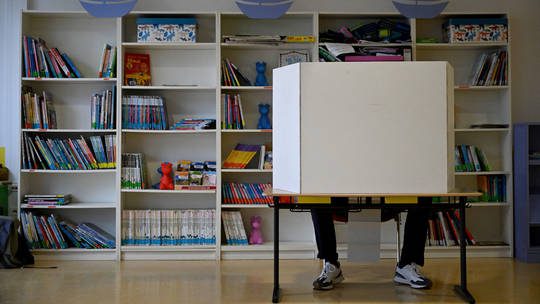World
Major electoral setbacks for Germany’s ruling alliance

In Hesse and Bavaria, the Social Democrats of Chancellor Olaf Scholz have suffered crushing setbacks.
In spite of Chancellor Olaf Scholz’s continued struggles with poor approval ratings, the ruling Social Democrats (SPD) suffered defeats in elections in the German states of Hesse and Bavaria on Sunday. Poor outcomes were also experienced by his coalition partners, the Free Democratic Party (FDP) and The Greens.
All three of Scholz’s national coalition parties have suffered in Hesse, with the Greens, SPD, and FDP potentially sliding below the 5% threshold needed to maintain their parliamentary representation.
The area, which serves as the nation’s financial centre, has swung in favour of the Christian Democratic Union (CDU), led by former chancellor Angela Merkel, which is expected to garner 34.6% of the vote, according to a prediction by public broadcaster ARD.
The Social Democrats are predicted to gain only 8.1% of the vote (9.7% in 2018), while the Christian Social Union (CSU), the CDU’s sister party that has ruled Bavaria since the 1950s, is predicted to receive 36.6% of the vote (37.2% in 2018). Germany’s second-largest state by population, Bavaria, has a sizable economy and is home to numerous industrial businesses.
Lars Klingbeil, a co-leader of the SPD, acknowledged that the outcomes were “two defeats” for his party. He continued, “There have been other crises in recent years that have contributed to the current state of affairs.
READ ALSO: Namibia and Germany’s Hyphen sign a $10 billion green energy deal
With 18.5% and 15.7% of the vote, respectively, the right-wing Alternative for Germany (AfD) party placed second in Hesse and Bavaria. This was a five-point improvement over the results from the last election in both states. The party is well recognised for supporting more stringent immigration controls. Additionally, it has criticised Berlin’s choice to arm Ukraine as well as Germany’s membership in NATO.
Energy price increases, high inflation, and measures aiming at a green economy transition have all put pressure on Scholz’s cabinet. At several campaign rallies, the chancellor received jeers and boos in addition to being referred to as a “warmonger” by irate supporters.
According to the ARD DeutschlandTrend poll, which revealed that four out of five Germans were dissatisfied with Scholz’s performance, the government’s approval rating is at its lowest point since Scholz assumed office in December 2021.
